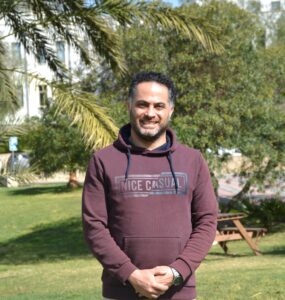
Driving Sustainable Development Through Data-Driven Research: An Interview with Dr. Mehdi Seraj
In this issue, we are pleased to spotlight Assoc. Prof. Dr. Mehdi Seraj, a promising scholar whose multidisciplinary background in engineering and economics has shaped a research portfolio that tackles some of the most pressing global challenges. With a strong focus on environmental economics, exchange rate dynamics, and financial development, Dr. Seraj is making meaningful contributions to both academic literature and policy design.
“My research bridges economic theory with practical solutions to environmental and financial challenges.”
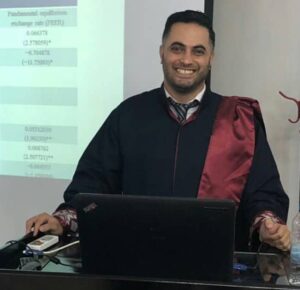
Can you share your academic journey and what inspired you to pursue research in your field?
My academic journey has been shaped by a multidisciplinary background, integrating industrial engineering, economic development, and applied economics. I obtained my Ph.D. in Economics from Eastern Mediterranean University in 2019, where my dissertation focused on the effect of real exchange rate undervaluation on economic growth. Prior to that, I earned a Master’s degree in Economic Development and Planning and a Bachelor’s degree in Industrial Engineering, which provided me with a strong analytical and quantitative foundation. My research interest in economic development and environmental economics stems from a desire to understand the complex interactions between economic policies, exchange rate dynamics, and sustainability. During my tenure as a teaching and research assistant under Prof. Glenn P. Jenkins, I had the opportunity to work on economic policy evaluations, which further deepened my interest in applied economic research. Additionally, my industry experience as a market analyst and technical consultant allowed me to apply theoretical economic models to real-world business and financial challenges.
“Understanding the complex interactions between exchange rates, economic development, and sustainability became a core motivation behind my work.”
What are the main areas of your research, and what impact do you aim to create through your work?
My research focuses on environmental economics, economic development, financial markets, and exchange rate dynamics. I employ empirical and econometric modeling techniques, including ARDL, MMQR, and RALS methods, to analyze the intricate relationships between macroeconomic stability, sustainable energy policies, and environmental outcomes. The primary impact I aim to create is providing policymakers and stakeholders with empirical evidence that supports sustainable economic development. My work on energy economics and environmental sustainability seeks to guide countries -especially developing economies- toward effective policy frameworks that balance economic growth with environmental responsibility. Additionally, I contribute to the academic community through editorial roles in journals such as SN Business & Economics and Sustainability, fostering rigorous discourse on pressing economic and environmental issues.
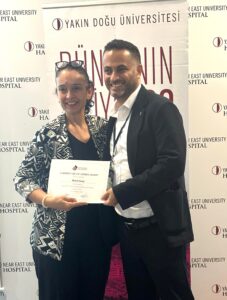
One of my most significant achievements is my research on the effect of exchange rate undervaluation on economic growth, which has contributed to a deeper understanding of exchange rate policies and macroeconomic performance. Another major milestone was my work on the impact of renewable and non-renewable energy consumption on environmental change in developing economies, which was published in high-impact journals and has influenced ongoing policy discussions. Additionally, my work on energy economics has been widely recognized in policy discussions. This journey, however, has not been solely the result of my efforts; I owe much of my success to the unwavering support of my wife, Asst. Prof. Dr. Fatma Türüc Seraj, the Chair of the Economics Department, Prof. Hüseyin Özdeşer, the Dean of the Faculty of Economics and Administrative Sciences, Prof. Şerife Zihni Eyüpoğlu, Prof. Glenn P. Jenkins, and my colleagues at the faculty. Their guidance, encouragement, and collaboration have played a crucial role in my academic and professional growth. Furthermore, I am also proud of my role in supervising Ph.D. and Master’s theses on topics such as green finance, energy poverty, and financial stability, shaping the next generation of researchers in economics. Additionally, receiving multiple Publication Awards from Near East University and Top Cited Article Awards from WILEY demonstrates the broader academic and societal relevance of my research.
“Through empirical analysis, I strive to help developing economies achieve a balance between growth and environmental sustainability.”
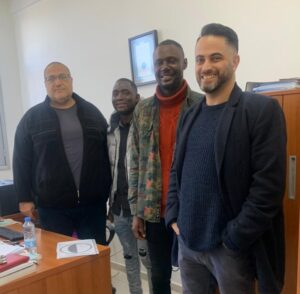
How does Near East University support young researchers like yourself in advancing their academic careers?
Near East University offers a dynamic research environment that fosters academic growth through interdisciplinary collaboration, funding opportunities, and access to international research networks. The university encourages young researchers by providing publication incentives and research grants to promote high-impact research; offering editorial and conference participation opportunities, enabling scholars to engage with global academic communities; supporting Ph.D. supervision and academic mentorship programs, which help researchers cultivate their expertise and leadership in academia; hosting international conferences and workshops, such as the Smart Economic Planning and Industrial Policy (SEPIP) Conference, where I serve as a scientific committee member, facilitating scholarly exchange and innovation; and promoting the salary according to the APDF score that is strongly related to the publication and researches. Through these initiatives, the university plays a crucial role in shaping research excellence and advancing knowledge in economics and sustainability.
What are your future research goals, and how do you see your work evolving in the coming years?
My future research goals are centered on advancing the nexus between economic development, environmental sustainability, and financial markets. Specifically, I plan to expand research on green finance and sustainable investment, examining how financial markets can drive climate-conscious economic growth; develop more comprehensive models that integrate technological progress, foreign direct investment, and environmental policies to assess their long-term impact on economic stability; explore gender dimensions in economic development, focusing on how financial and labor policies affect gender inequality across different economic contexts; and strengthen interdisciplinary collaborations, integrating insights from industrial engineering, environmental sciences, and financial economics to develop holistic policy recommendations.
“I want my work to not only advance academic understanding but also shape policies that support inclusive and sustainable development.”
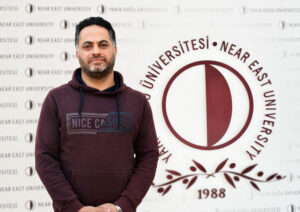
About the Researcher
Assoc. Prof. Dr. Mehdi Seraj is a faculty member in the Department of Economics at Near East University. He obtained his Ph.D. in Economics from Eastern Mediterranean University in 2019, following a Master’s degree in Economic Development and Planning and a B.Sc. in Industrial Engineering. His interdisciplinary academic background provides a strong foundation in economic modeling, planning, and quantitative research.
Between 2015 and 2019, he served as a teaching and research assistant under the supervision of Prof. Glenn Jenkins. He also gained professional experience as a Market Analyst at the Informatics Services Corporation in Iran and as a Technical Office Counselor at Faraz Cement Company. Prior to joining NEU, he lectured on industrial engineering at Islamic Azad University in Iran.
Dr. Seraj is an active researcher with numerous publications in high-impact journals indexed in the Web of Science Core Collection. His work spans environmental economics, financial development, economic planning, energy policy, and exchange rate dynamics. He also holds editorial roles in journals such as SN Business & Economics and Sustainability, contributing to scholarly discourse and policy-oriented research in his areas of expertise.